AMD Ryzen 7 2700 Review: The Non-X Factor
Why you can trust Tom's Hardware
Rendering, Encoding & Compression
Rendering
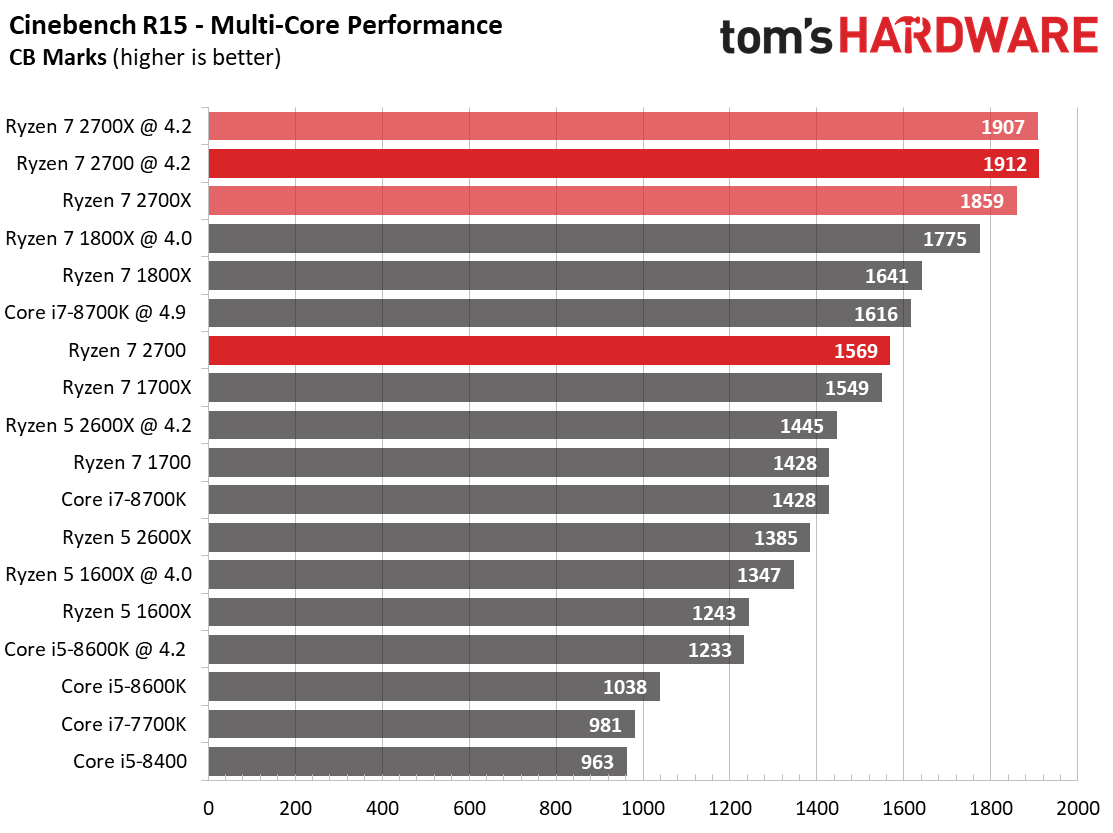
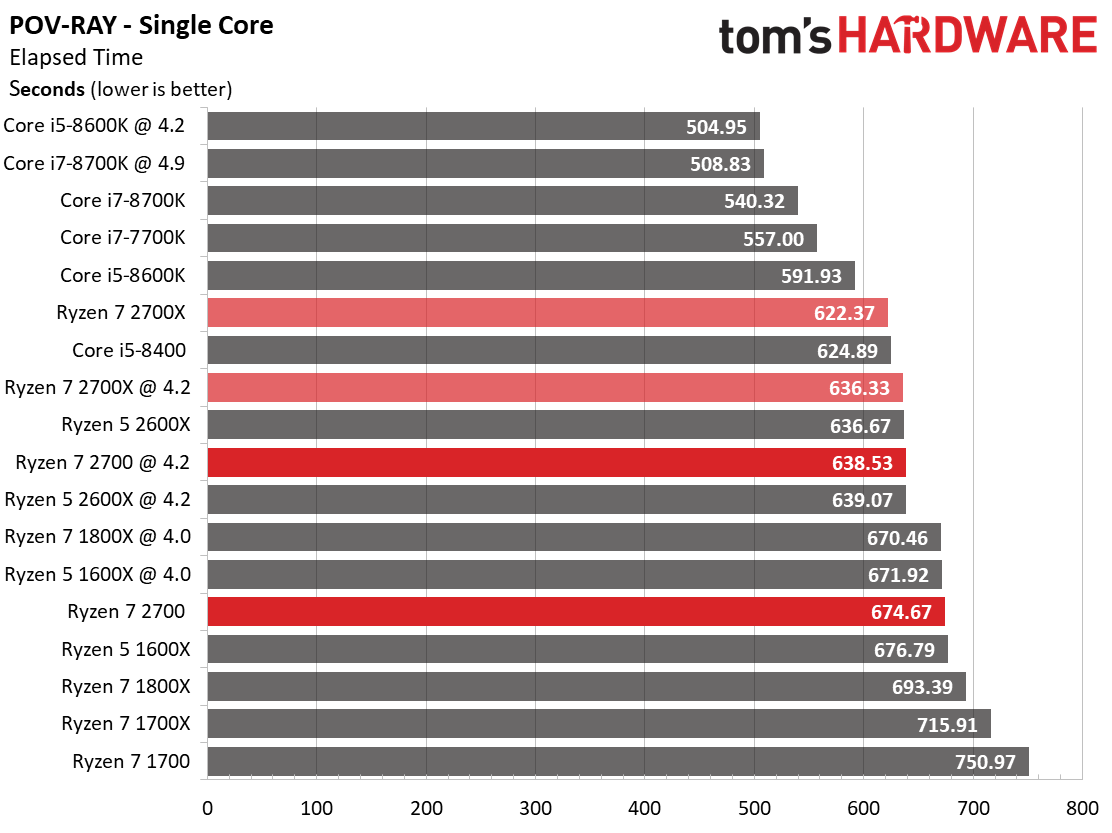
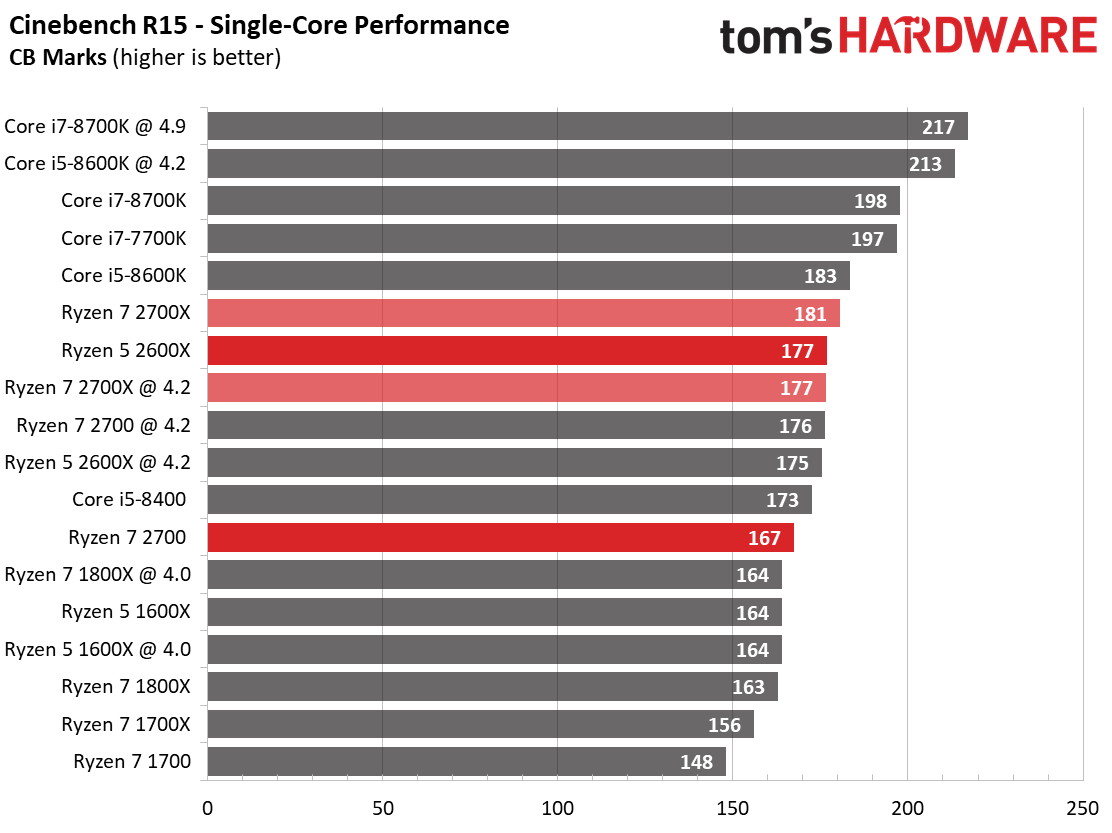
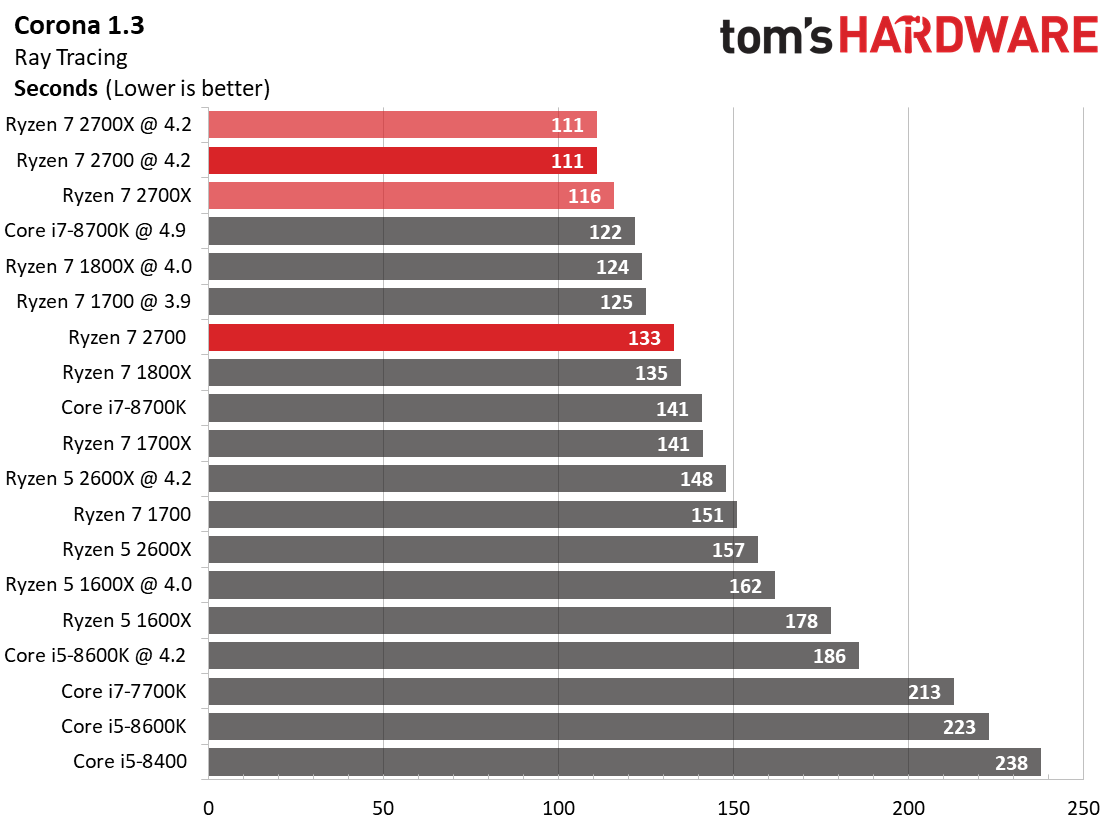
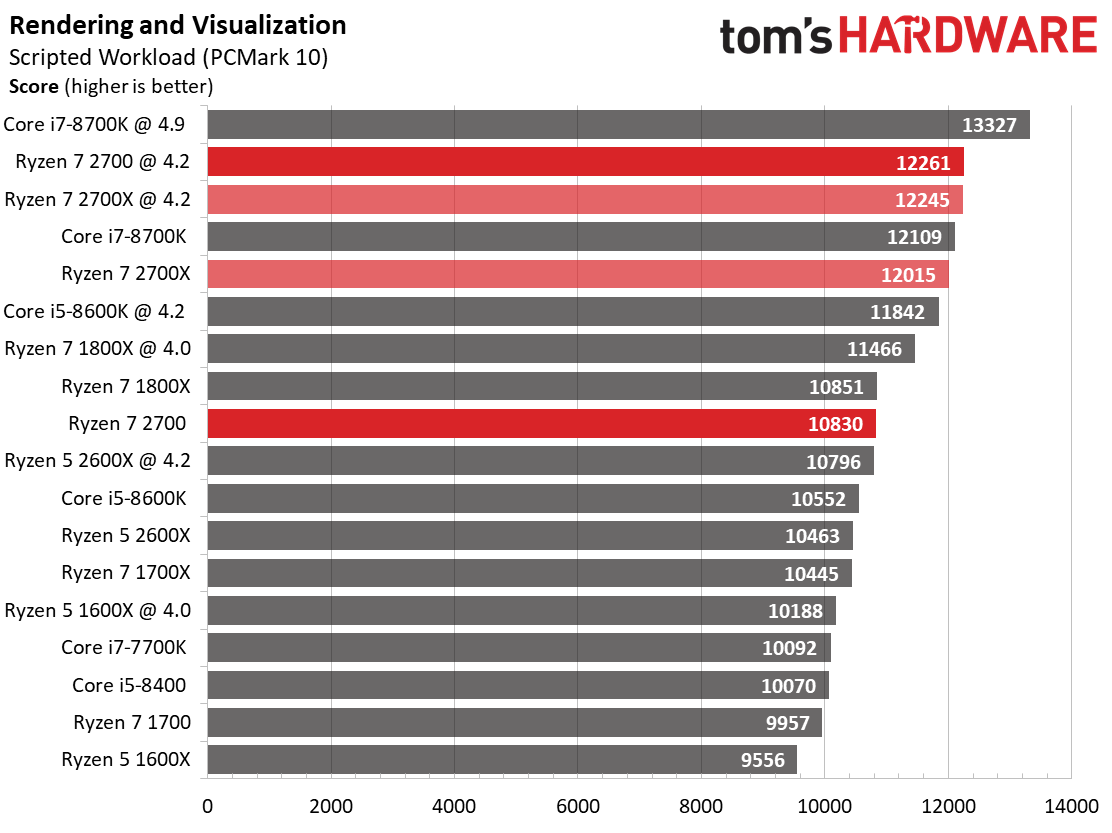
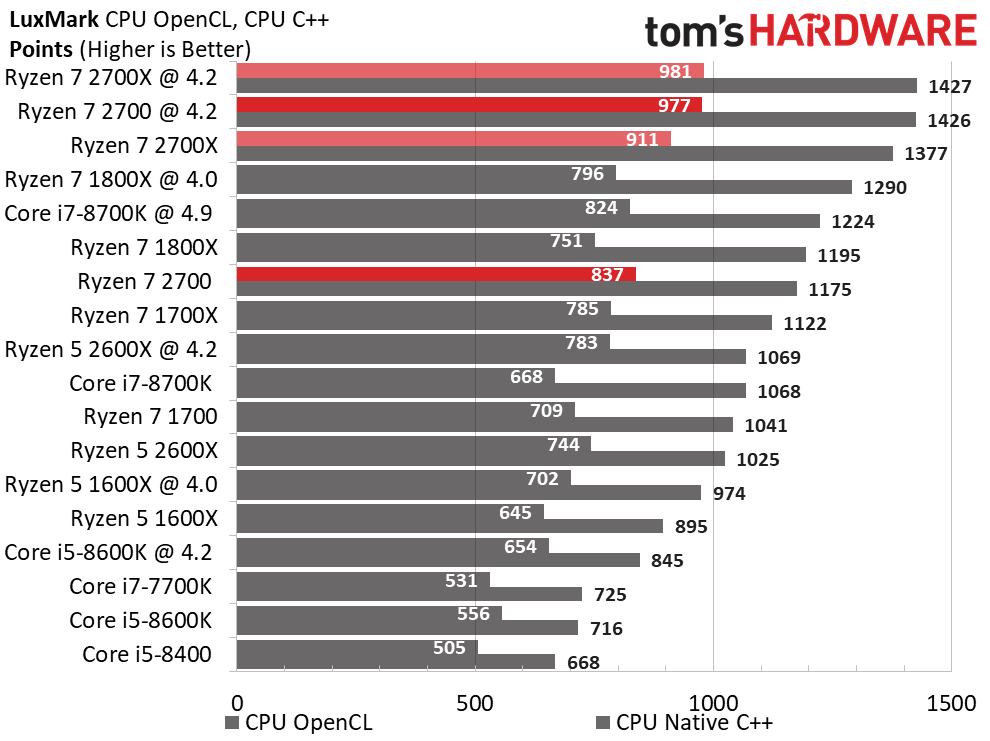
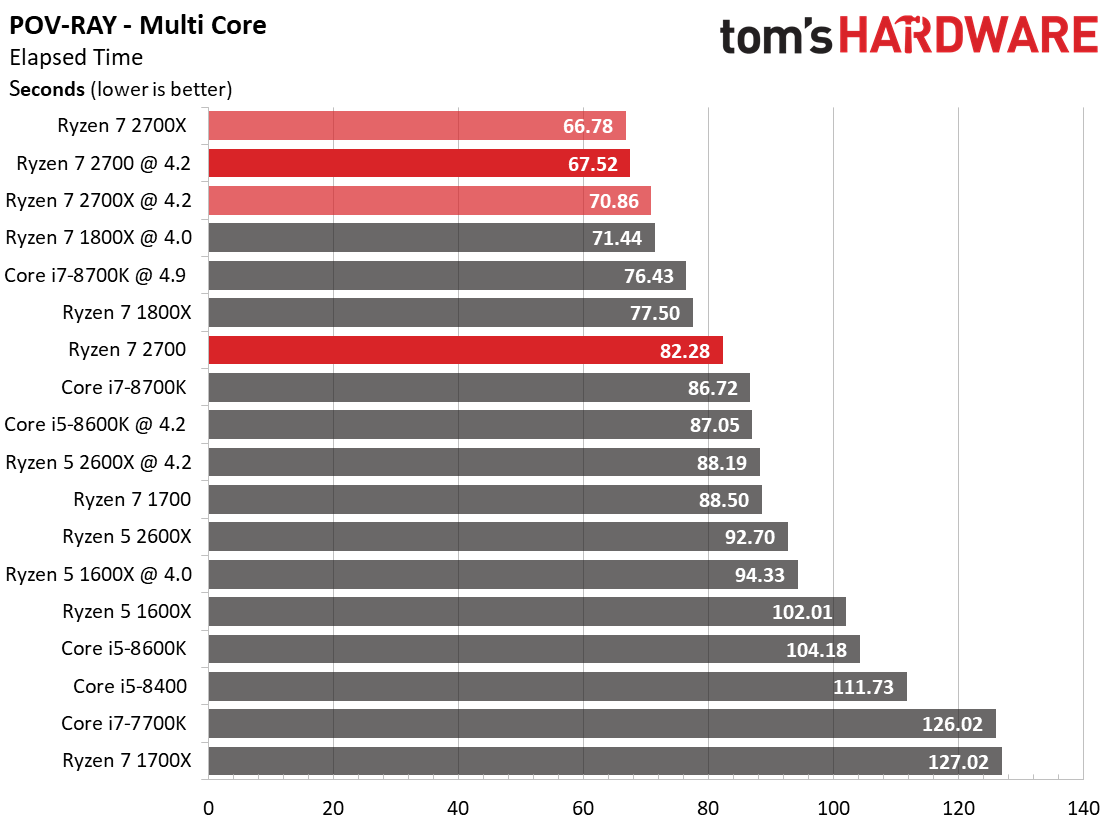
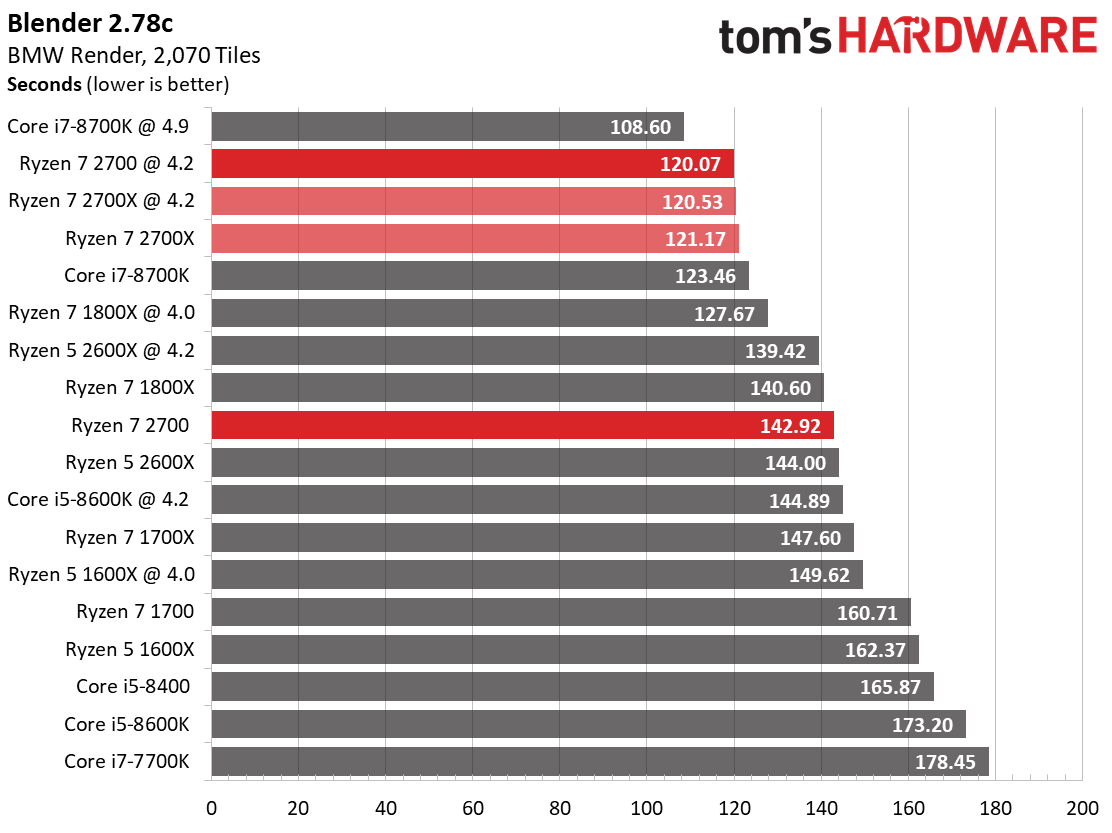
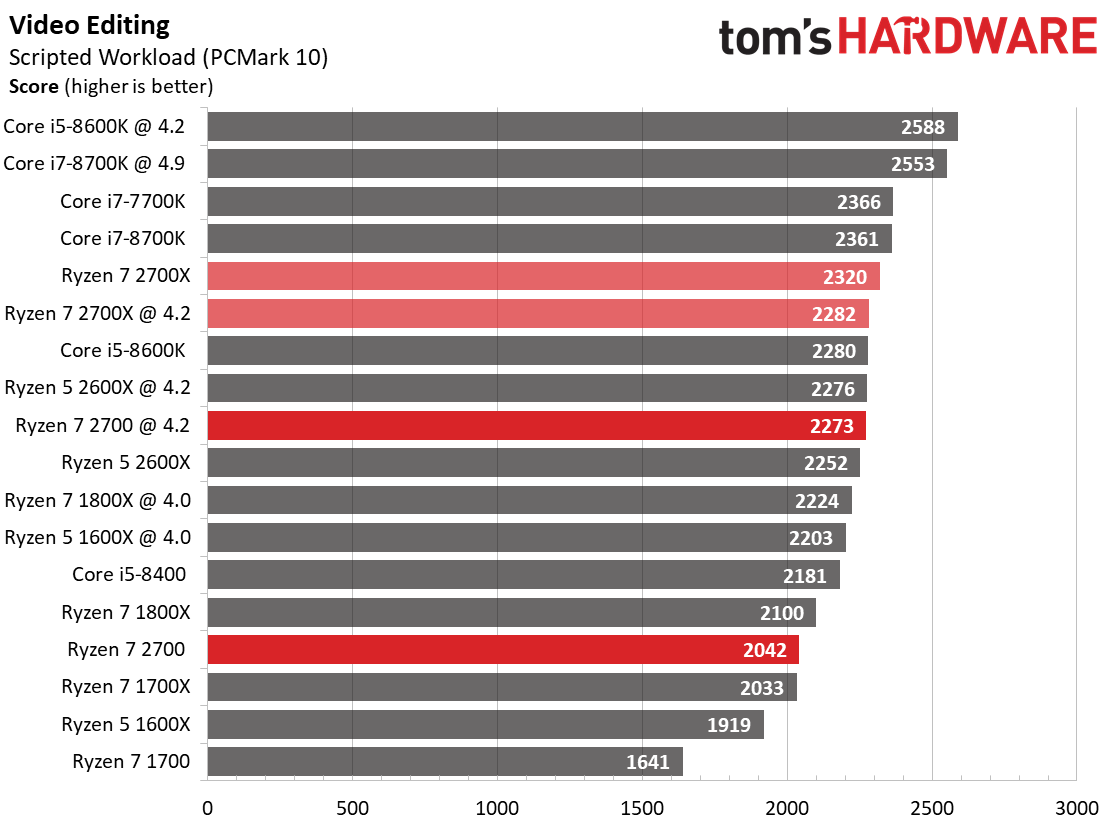
Ryzen 7 CPUs find plenty of fans among the rendering crowd. AMD's Ryzen 7 2700 represents a solid step beyond the company's 1000-series processors in our multi-threaded tests. In fact, it often provided a similar performance level as the previous-generation 1800X flagship in our tests.
The Intel processors demonstrated their per-core advantage in our lightly threaded tests. Meanwhile, a stock Ryzen 7 2700X proved faster than the same chip overclocked in many of the same benchmarks, since its 4.3 GHz dual-core boost frequency is higher than our 4.2 GHz all-core overclock.
Encoding & Compression
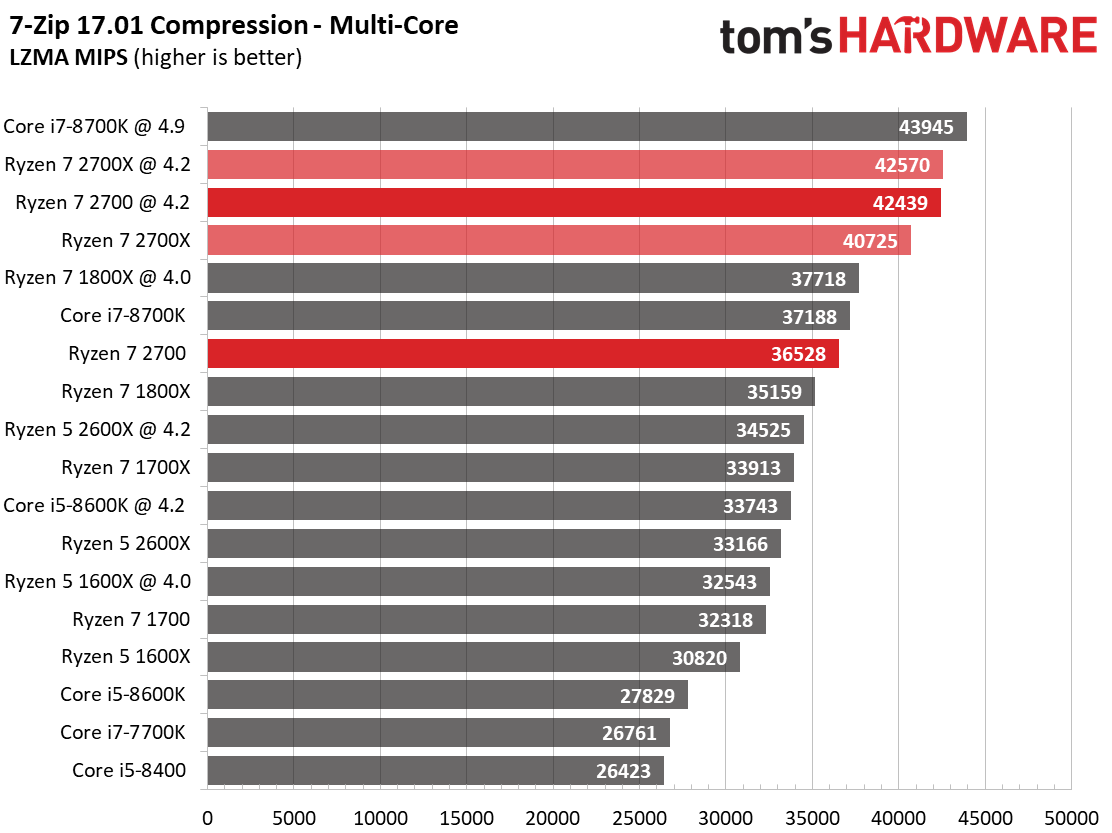
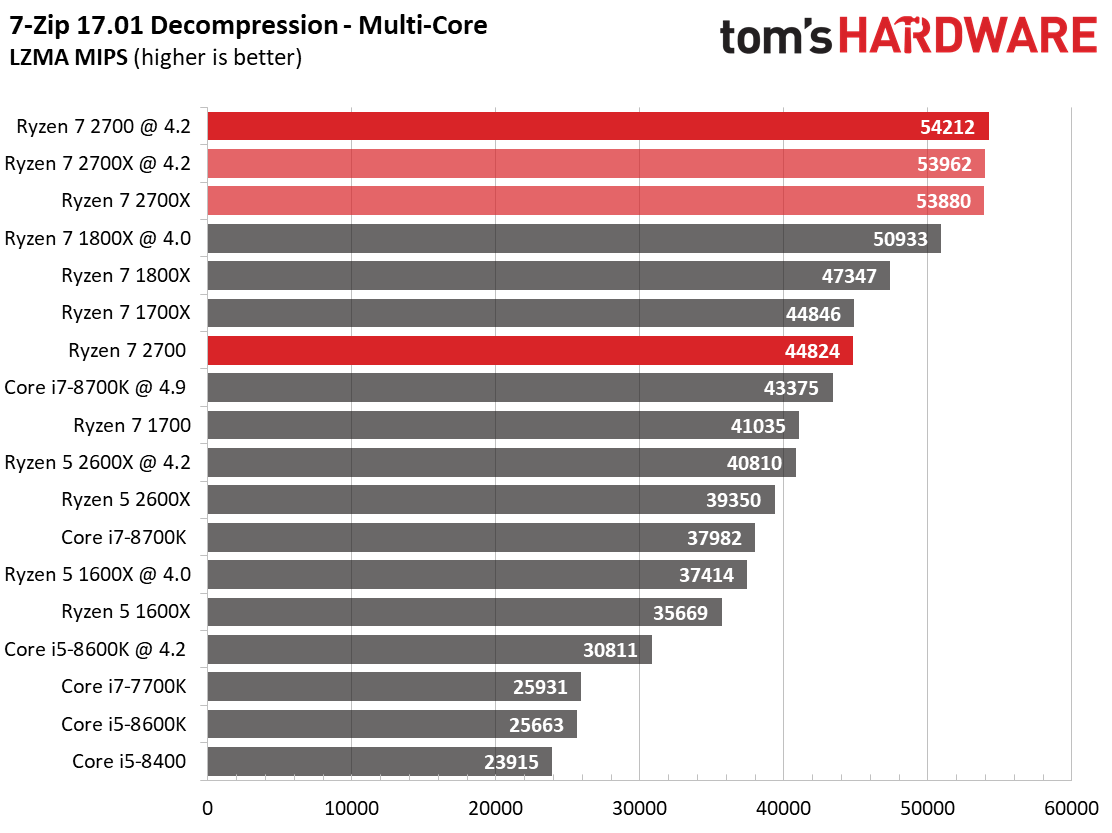
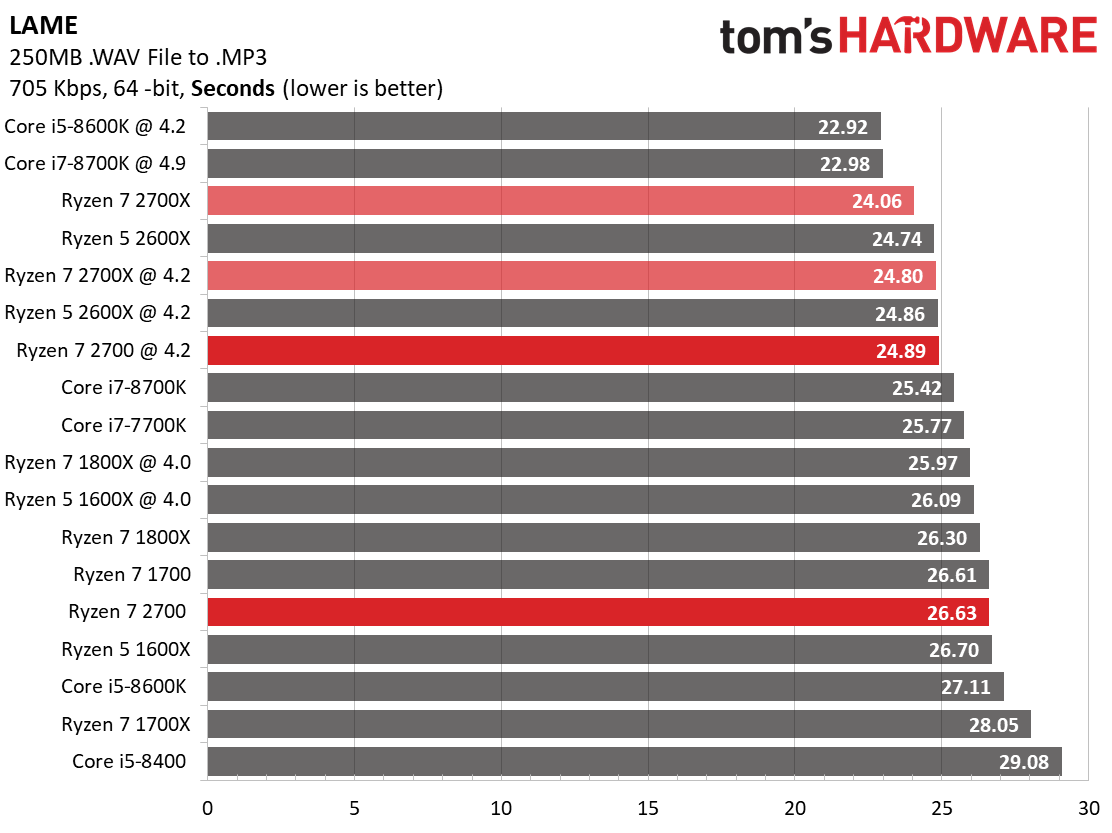
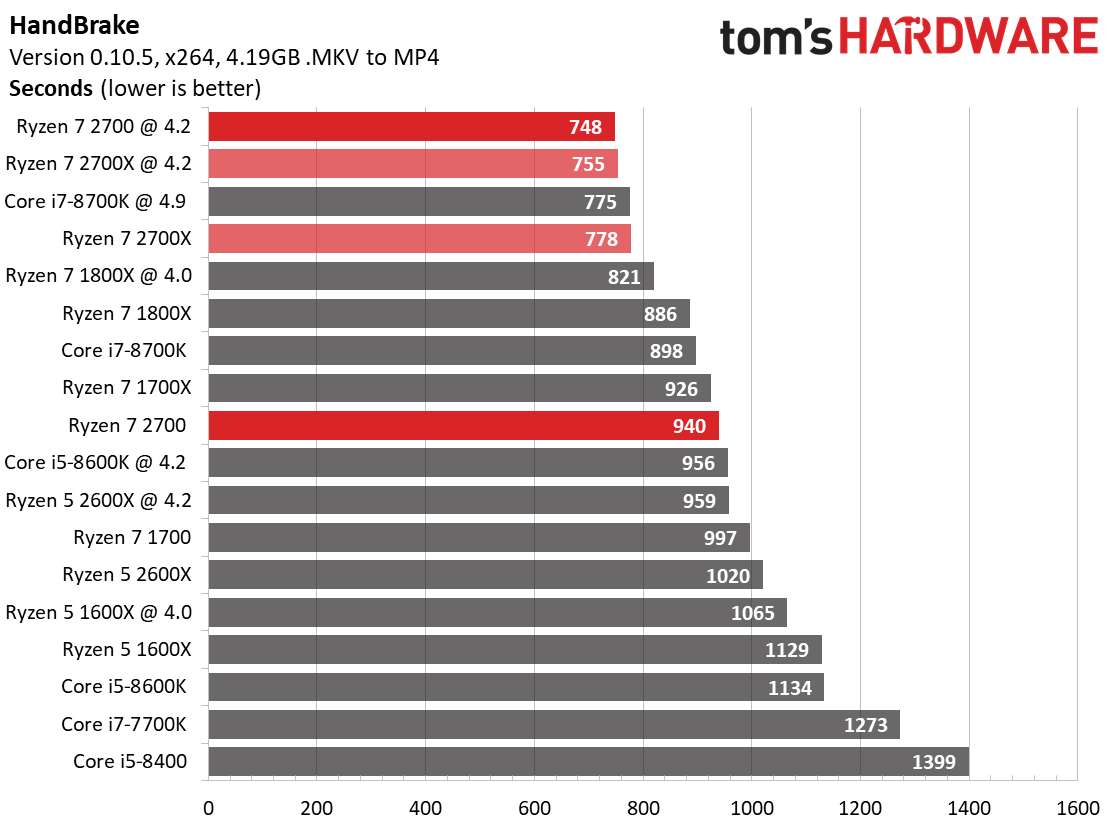
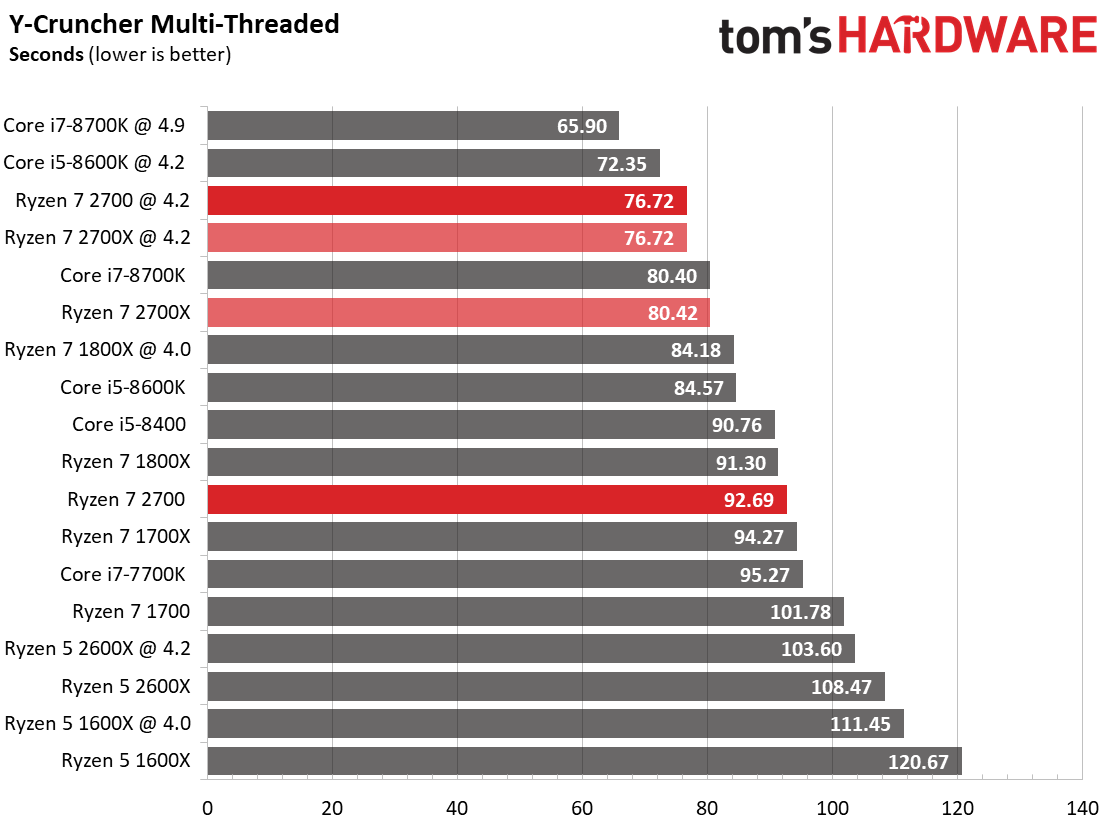
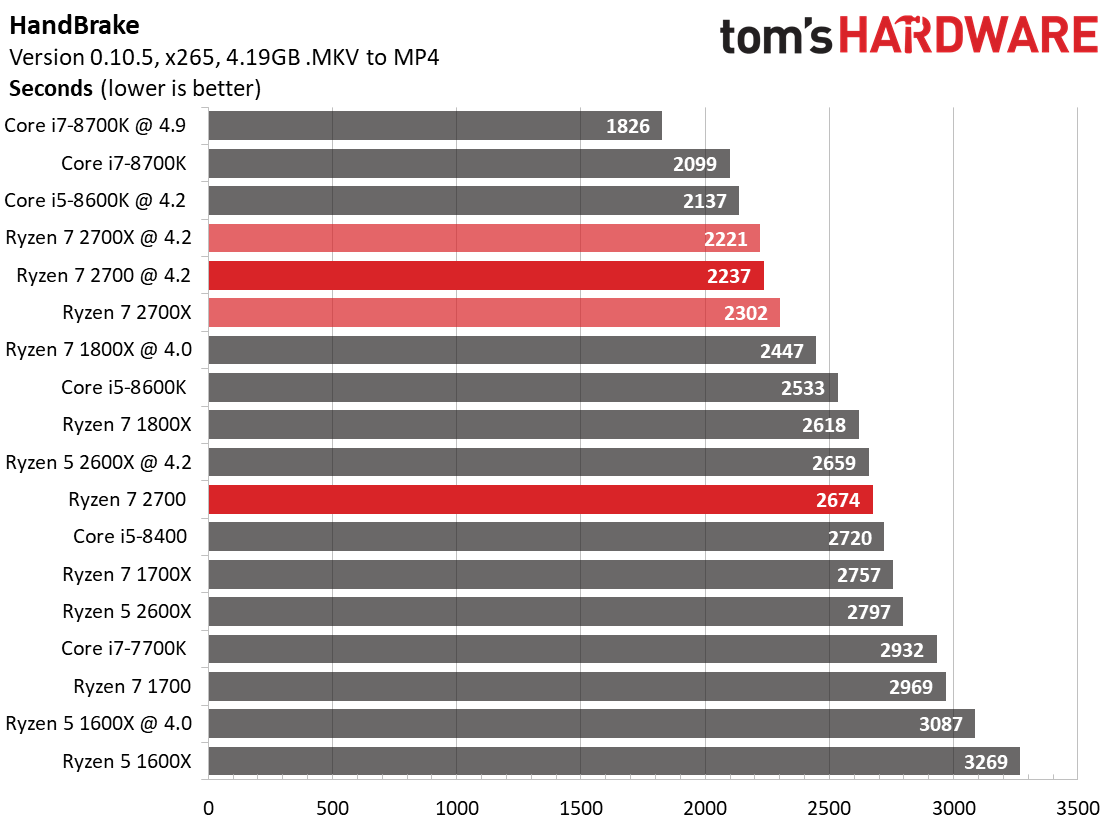
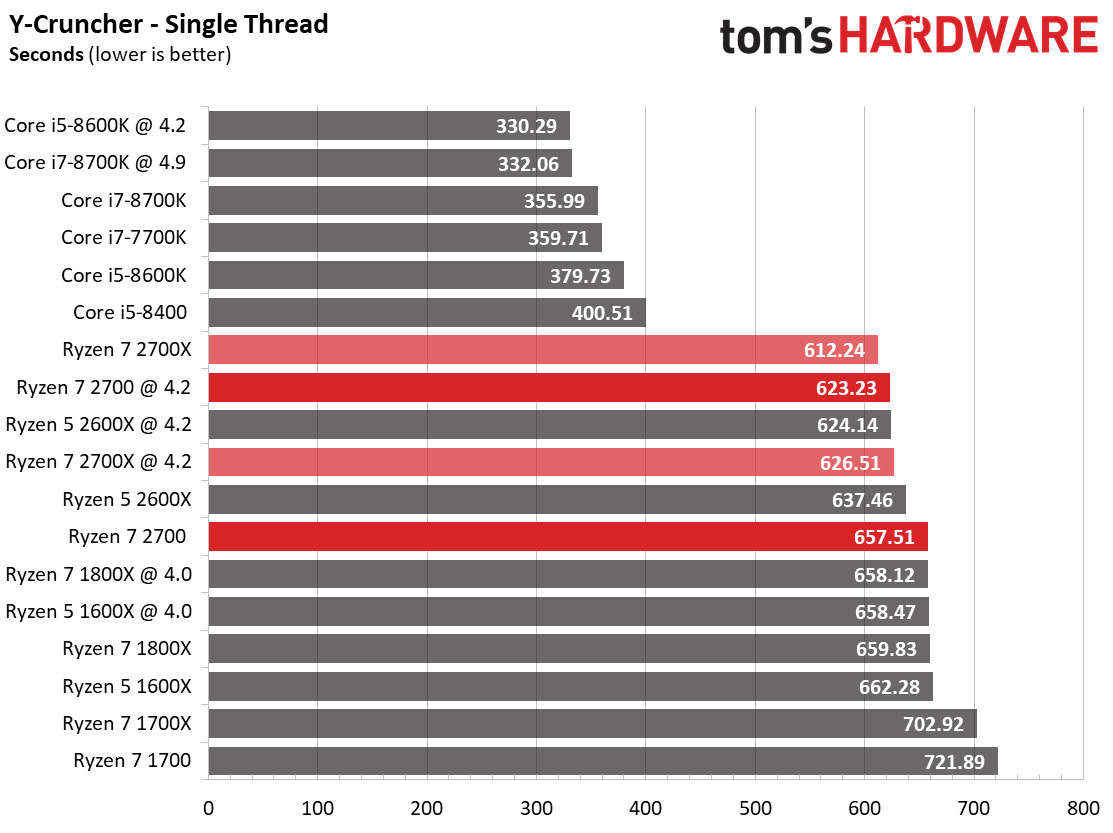
LAME is a quintessential single-threaded workload that typically illustrates Intel's per-clock advantage. This time around, though, AMD's Ryzen 7 2700X and Ryzen 5 2600X landed on top of the mighty Core i7-8700K in stock form.
Our threaded compression and decompression tests work directly from system memory, removing our SSDs from the equation. The Ryzen 7 2700 put its eight cores to good use, beating most of its competition.
There's a larger delta between Intel and AMD processors in our HandBrake x265 test compared to the x264 benchmark, given the former's heavier reliance on AVX instructions. AMD looks much better in both metrics than it used to, though. The improved multi-core Precision Boost 2 frequencies help level the playing field.
MORE: Best CPUs
MORE: Intel & AMD Processor Hierarchy
Get Tom's Hardware's best news and in-depth reviews, straight to your inbox.
MORE: All CPUs Content
Current page: Rendering, Encoding & Compression
Prev Page Office & Productivity Next Page Final Analysis
Paul Alcorn is the Editor-in-Chief for Tom's Hardware US. He also writes news and reviews on CPUs, storage, and enterprise hardware.
-
rantoc @1440p or 4k the gaming difference wont be noticeable as the gpu starts to become the bottleneck. Game with an 2700x on an 3440x1440 100hz display (1080ti) and couldn't be happier as it also have the benefits of chewing through threaded workloads like a champ and that at a good price. So good mid-high res gaming with very good threaded performance, hard to beat really.Reply -
philipemaciel I am going to buy the 2700.Reply
The 65W TDP is low enough for passive cooling. That it is cheaper than the 2700X is just the icing on the cake.
For *my* needs, it is perfect. I am more than happy to lose a little performance and have the TDP drop 40W. -
mitch074 I think @philipemaciel hit it right on the head: the 2700 is a much better choice if you're looking for a powerful CPU that sips power (65W is damn impressive, and that's before taking into account the possibilities offered by undervolting), as this puts it in a spot both the 2700X and the 2600X can't touch. For pure gaming, the 2600X is a much more sensible choice, and if you need absolute power without the need to tinker with it, the 2700X is perfect (an 8-core CPU that overclocks itself, it's a dream come true).Reply
Now though, it would have been better if AMD had sold those without a cooler for $20 less - the price gap with 2700X would have made it much more enticing, and overclockers could have pushed the hell out of it with watercooling etc. -
redgarl You rated that 6/10? Are you mad? Also, the stock cooler is not sufficient for Overclocking? Do you realize that this is the case for all marketed CPUs?Reply
OMG, YOU GUYS ARE GENIUSES! -
theyeti87 Reply20974031 said:I am going to buy the 2700.
The 65W TDP is low enough for passive cooling. That it is cheaper than the 2700X is just the icing on the cake.
For *my* needs, it is perfect. I am more than happy to lose a little performance and have the TDP drop 40W.
Your reasoning is the same logic I used in selecting my 1700 non-X. I am attracted to efficient power. -
Paul Alcorn Reply20974322 said:"...our 4.0V Vcore, 1.2V SoC"
That's a LOT of vcore right there!
Thanks, good eye! fixed. (1.4V) -
LORD_ORION I would expect the 2700 to have longevity.Reply
NeoHome economics 101: Buy quality parts that/and don't push the hardware limits.
Main System(5-7 years) becomes Utility System(5+ years)
Repeat
Unless of course you burn out the mainsystem in 3-4 years *factory overclocks tend to do this too). ;) -
Garrek99 The point of this processor is power efficiency not performance.Reply
Where are the performance per Watt or Temp charts? -
ElectrO_90 You do realise, the whole point is to sell the 2700 for $30 so they can sell the main 2700x, because people don't mind spending 10% more, unless they are really restricted for power/heat.Reply